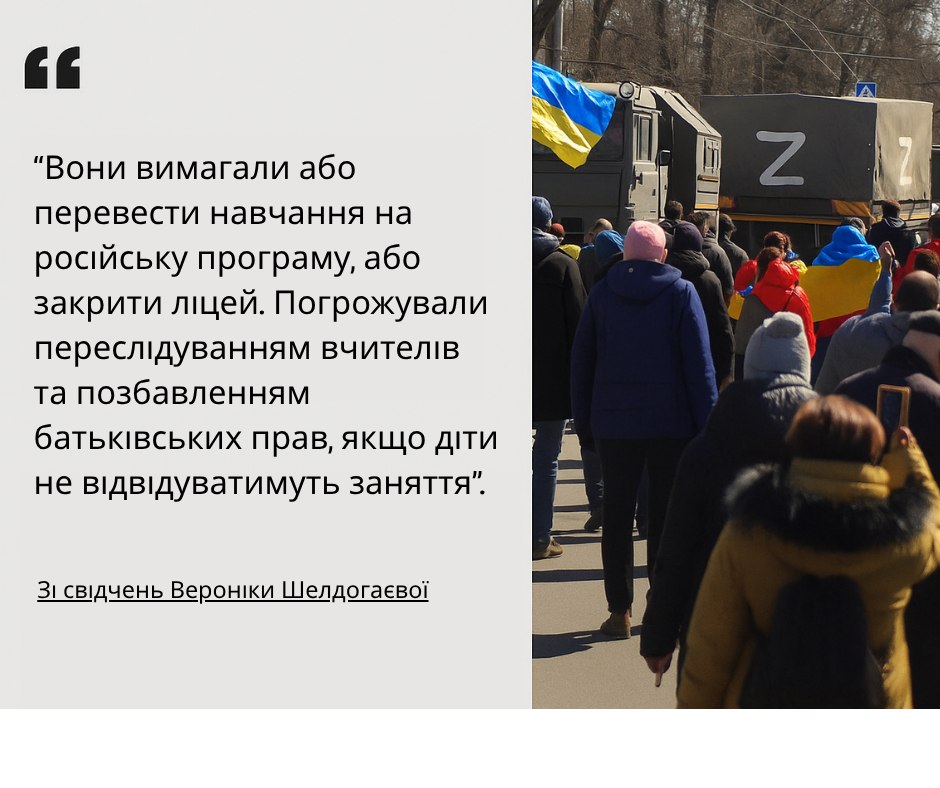

Before the full-scale war began, Veronika Sheldagayeva lived in Kherson. She studied at a lyceum, was involved in theatre activities, and took her first steps in volunteering. Her city came under Russian occupation on 1–2 March 2022.
Veronika remembers how, in the Shuminsky district, near the square at the intersection of Naftovykiv and Druha Zakhidna streets, local residents tried to stop Russian military vehicles. The occupiers fired on three civilian cars from tanks. The number of casualties remains unknown — probably up to 20 people. After the battle, cars, benches and monuments were burned in the square.
On 5 March, rallies against the occupation began near the Ukraine cinema and on Freedom Square. People came out with Ukrainian flags, demanding the liberation of the city.
Veronika learned from her father that at the end of September 2022, the occupying authorities ordered the seizure of medical and fire engines in Kherson. Cars were taken from hospitals, clinics and the State Emergency Service.
On 27 September 2022, the girl witnessed the arson of the construction store ‘33 Square Metres’ on St. Cyril and Methodius Street. The occupiers, dressed in dark green pixelated uniforms and balaclavas, arrived in civilian cars with the letter ‘Z’ on them. Some of them entered the premises, while others drove away the locals. Shortly after their visit, the store caught fire.
In early August 2022, Veronika was at the Kherson Physics and Technology Lyceum. Armed men arrived there along with a representative of the occupation education administration. They demanded that the school either switch to a Russian curriculum or close. They threatened to prosecute teachers and deprive parents of their parental rights if their children did not attend classes. Some of the teachers agreed to cooperate, while the rest continued to teach online using the Ukrainian curriculum.
In the autumn of 2022, the girl learned about the forced deportation of children from Kherson to Russian camps. Among them was Veronika's 12-year-old friend, Yelizaveta Masich. The children were isolated from their parents, and the process of recognising paternity was delayed due to the parents' lack of Russian passports. It took four months for the mother to be able to take them away.
Veronika's testimony is further documentary evidence of Russia's war crimes against civilians in Kherson.
This documentation project was carried out with the support of the Norwegian Helsinki Committee (NHC). The views and conclusions expressed in this publication are solely those of the authors and do not necessarily reflect the position or policy of the NHC.
Photo: Suspilne Kherson